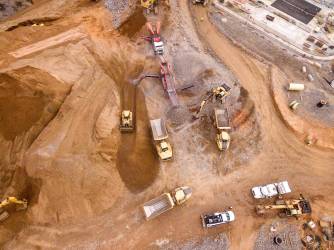Log in or create a free account to keep reading
Analyses by award-winning experts

Log in or create a free account to keep reading
Analyses by award-winning experts
This page uses cookies. Cookies are files stored in your browser and are used by most websites to help personalise your web experience. For more information see our Privacy Policy
This page uses cookies. Cookies are files stored in your browser and are used by most websites to help personalise your web experience. For more information see our Privacy Policy
By clicking “Accept All”, you agree to the storing of cookies on your device to enhance site navigation, analyze site usage, and assist in our marketing efforts.
This group contains cookies that are necessary for our websites to work. They take part in functionalities like language preferences, traffic distribution or keeping user session. They cannot be disabled.
| Cookie name
|
Description
|
|---|---|
| SERVERID | |
| userBranchSymbol | Expiration date 1 day |
| test_cookie | Expiration date 1 hour |
| adobe_unique_id | Expiration date 364 days |
| __hssc | Expiration date 1 hour |
| SESSID | Expiration date 1 day |
| __cf_bm | Expiration date 1 hour |
| intercom-id-iojaybix | Expiration date 270 days |
| intercom-session-iojaybix | Expiration date 6 days |
| xtbCookiesSettings | Expiration date 364 days |
| TS5b68a4e1027 | |
| countryIsoCode | |
| xtbLanguageSettings | Expiration date 364 days |
| userPreviousBranchSymbol | Expiration date 364 days |
| intercom-device-id-iojaybix | Expiration date 270 days |
| __cfruid | |
| _cfuvid |
We use tools that let us analyze the usage of our page. Such data lets us improve the user experience of our web service.
| Cookie name
|
Description
|
|---|---|
| _gid | Expiration date 1 day |
| _gat_UA-98728395-1 | Expiration date 1 hour |
| _gat_UA-121192761-1 | Expiration date 1 hour |
| _gcl_au | Expiration date 89 days |
| _ga_CBPL72L2EC | Expiration date 729 days |
| _ga | Expiration date 729 days |
| __hstc | Expiration date 179 days |
| __hssrc | |
| _vwo_uuid_v2 | Expiration date 365 days |
| _ga_TC79BEJ20L | Expiration date 729 days |
| _vwo_uuid | Expiration date 365 days |
| _vwo_ds | Expiration date 29 days |
| _vwo_sn | Expiration date 1 hour |
| _vis_opt_s | Expiration date 99 days |
| _vis_opt_test_cookie | |
| af_id | Expiration date 394 days |
| afUserId | Expiration date 730 days |
| AF_SYNC | Expiration date 6 days |
| AnalyticsSyncHistory | Expiration date 29 days |
This group of cookies is used to show you ads of topics that you are interested in. It also lets us monitor our marketing activities, it helps to measure the performance of our ads.
| Cookie name
|
Description
|
|---|---|
| MUID | Expiration date 389 days |
| _omappvp | Expiration date 3998 days |
| _omappvs | Expiration date 1 hour |
| _uetsid | Expiration date 1 day |
| _uetvid | Expiration date 389 days |
| _fbp | Expiration date 89 days |
| fr | Expiration date 89 days |
| _ttp | Expiration date 89 days |
| _tt_enable_cookie | Expiration date 89 days |
| hubspotutk | Expiration date 179 days |
| IDE | Expiration date 389 days |
| YSC | |
| VISITOR_INFO1_LIVE | Expiration date 179 days |
| li_sugr | Expiration date 89 days |
| guest_id_marketing | Expiration date 729 days |
| guest_id_ads | Expiration date 729 days |
| guest_id | Expiration date 729 days |
| muc_ads | Expiration date 729 days |
| VISITOR_PRIVACY_METADATA | Expiration date 179 days |
| MSPTC | Expiration date 389 days |
Cookies from this group store your preferences you gave while using the site, so that they will already be here when you visit the page after some time.
| Cookie name
|
Description
|
|---|---|
| bcookie | Expiration date 364 days |
| lidc | Expiration date 1 day |
| UserMatchHistory | Expiration date 29 days |
| bscookie | Expiration date 364 days |
| li_gc | Expiration date 179 days |
| personalization_id | Expiration date 729 days |
This page uses cookies. Cookies are files stored in your browser and are used by most websites to help personalise your web experience. For more information see our Privacy Policy You can manage cookies by clicking "Settings". If you agree to our use of cookies, click "Accept all".
The selected country of residence is not operated. Please choose a different country.
Changing the language affects the change of regulator

